Sergei Baltacha can see similarities between the two football nations closest to his heart.
And the former St Johnstone fans’ favourite believes both Ukraine and Scotland have a strong chance of fulfilling their Euro 2024 ambitions.
Getting out of their group would be an achievement of substance for Steve Clarke’s side, who carry the weight of no Scottish side having done that before, and Serhiy Rebrov’s, who needed a play-off to get to Germany.
Baltacha believes there are distinct parallels and reasons for optimism.
“Qualifying was the most important thing and they have both done that,” he told Courier Sport.
“For Ukraine, it was extra hard, of course. The players don’t have any home games.
“And both have also been drawn in groups that could have been much harder (Germany, Switzerland and Hungary for Scotland and Belgium, Romania and Slovakia for Ukraine).
“Collectively, Ukraine are a good squad with a good manager and that can take you a long way.
“Scotland are similar.
“There is a strong unity and, like Ukraine, Scotland also have a few players in the English Premier League.
“When I was playing there were a lot.
“The numbers dropped for a long time but now they are coming back up.
“That’s important.
“And it’s some of the best clubs – Liverpool, Manchester United and Aston Villa.
“I would give Scotland and Ukraine a good chance of getting out of their group and into the next round.
“Then after that it is knockout football, which is very unpredictable.”
‘Powerful motivator’
Scottish motivation is football, perhaps culturally, orientated.
For Ukraine, there are more profound spirit-lifting factors at play.
More than two years after Russian troops invaded their country, there is no end in sight to the loss of life and threat to sovereignty.
Sporting accomplishment raises the profile of a war and raises morale.
“These games are important for the people who fight against Russia in the war,” said Baltacha. “They will be watching or will hear the results.
“And they are important for the country as a whole – Ukrainians who live at home and those who have had to leave.
“Oleksandr Usyk winning his fight against Tyson Fury recently gave something to Ukraine.
“And the footballers will want to do the same.
“Playing for your country at a time like this is a very powerful motivator.
“It will be the first tournament Ukraine has been at a major tournament since the war began.
“A lot of Ukrainian people live in Germany.
“We’ll have a big support there.”
Mudryk context
Mykhailo Mudryk became Ukraine’s most expensive ever player when he joined Chelsea for around £90 million last year.
As with many others at Stamford Bridge, the forward’s Premier League season was an underwhelming one.
But Baltacha has called for patience.
“Mudryk hasn’t found it easy at Chelsea but I wouldn’t be too critical,” he said.
“I know myself that it’s not easy to adapt to a new country. Life, training, games are all different.
“And with the Ukrainian boys you have the war as another factor.
“They will all have different situations with family and friends that are stressful.
“Cities are being bombarded, remember.”
Spain ’82 memories
Euro 2024 will be Scotland’s 10th attempt at progressing to the knockout stages of a World Cup or European Championship finals.
Even Clarke would admit there have been stronger squads than the current one which have fallen at the first hurdle.
Baltacha, as a key defender in the Soviet Union’s 1982 World Cup side, played a part in failure number three.
A 2-2 last game draw in Malaga resulted in Konstantin Beskov’s team advancing to the next stage on goal difference.
“That was a very good Scotland side,” Baltacha recalled.
“Just look at the names – Kenny Dalglish was injured but as defenders we played against Joe Jordan and Steve Archibald.
“And they had Souness, Hansen, Strachan and other great players.
“It was a close game, very tough for us.
“I think about that match a lot because of my connections with Scotland.
“I played there, my son’s family still live there and my grandson (Alex, who is in St Johnstone’s academy) might play for Scotland!”
The moment that has endured longer than any other from that game is the infamous collision between Willie Miller and Alan Hansen that gift-wrapped the Soviet Union their second goal late in the contest.
According to Baltacha, the fact that this was an unfamiliar central defensive partnership Jock Stein had thrown together, may well have been the cause of the calamitous coming together on the touchline.
“When you’ve got tens of thousands of people in the stadium for a big match like that it’s very hard to hear even a shout from two metres,” he said.
“So I don’t know what the communication was between the two players.
“Usually, you would expect the player coming towards the ball (Miller) to be the one who challenges for it.
“Because communication is so hard it is more about observation and reading the game.
“One centre-back knowing what the other one does is very important in a situation like this – in that Soviet Union team we knew each other’s games very well.
“Maybe that wasn’t the case for Miller and Hansen.
“Before the game I would talk with my partner at the back about different situations we might face.
“It was a simple situation and we were lucky in that moment. I could not believe it.
“In 1982 you would never have said Scotland would still be waiting to get into the next round at a tournament. Hopefully it happens this time.”
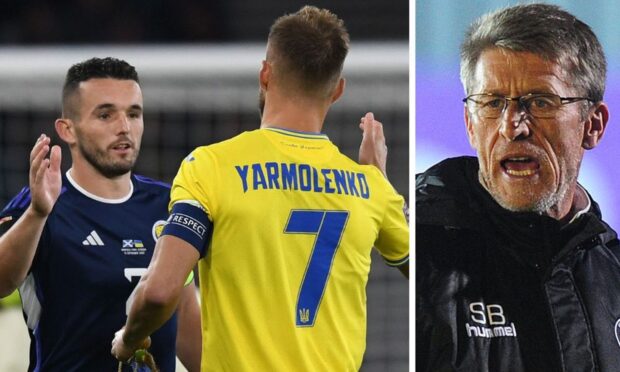
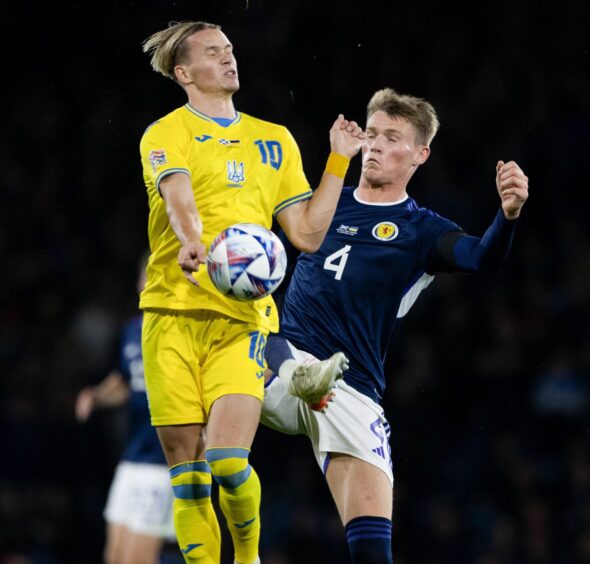
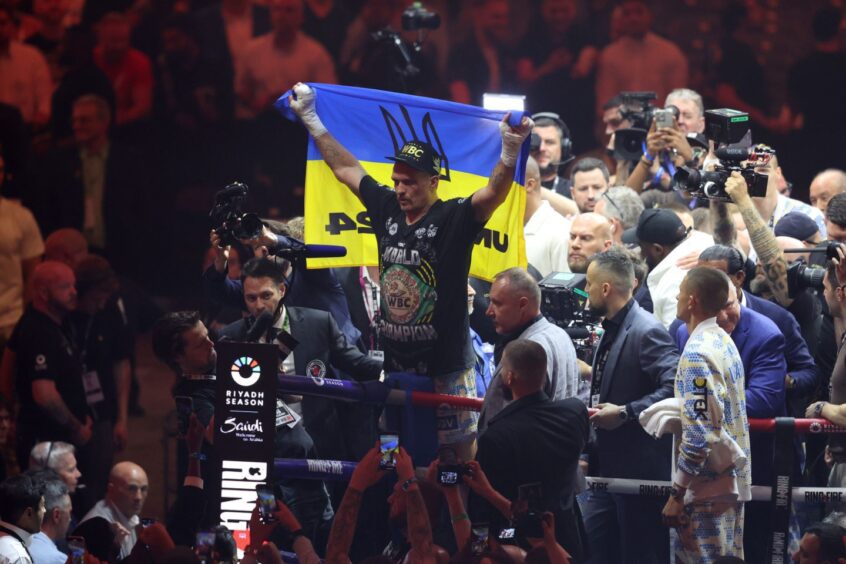
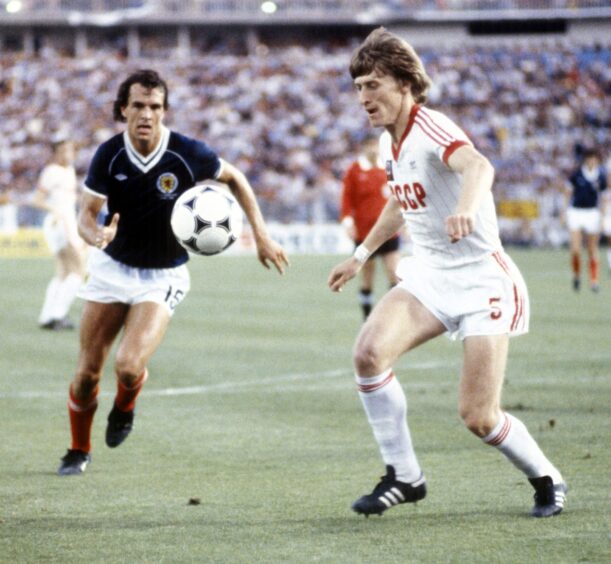
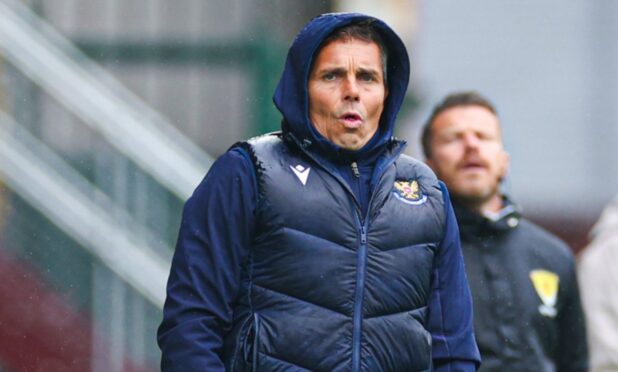
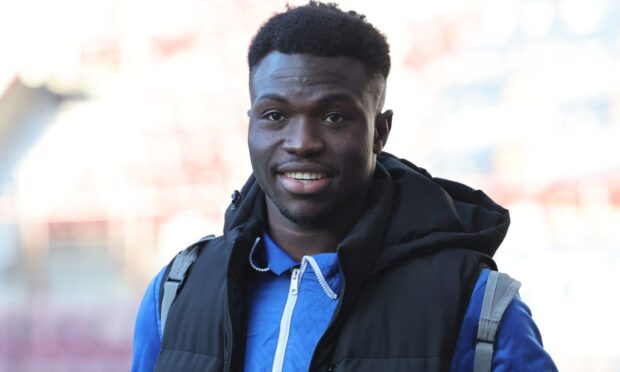
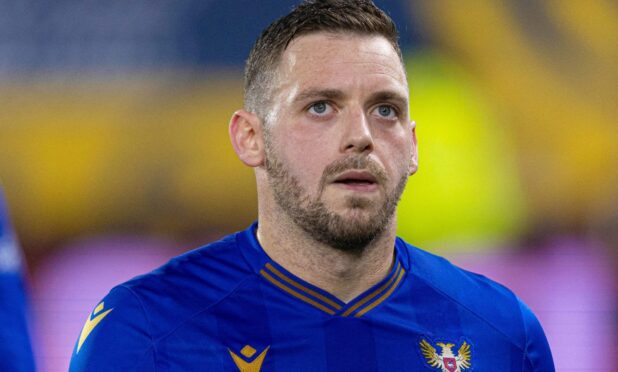
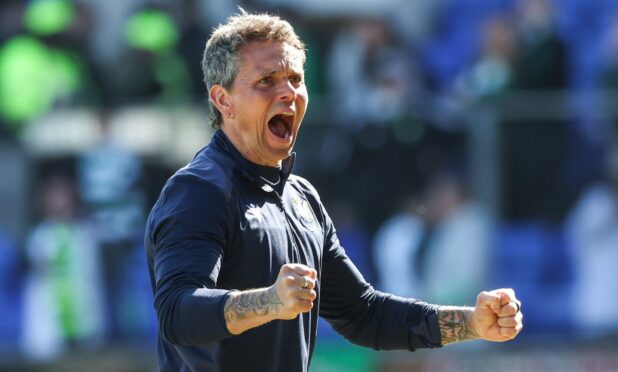
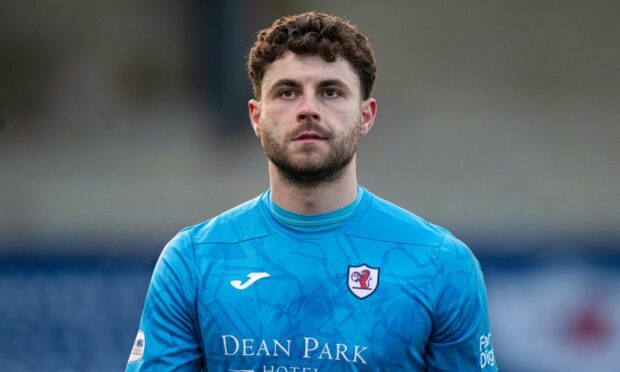
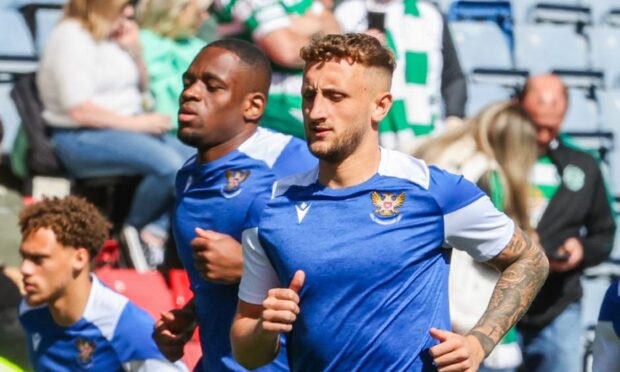
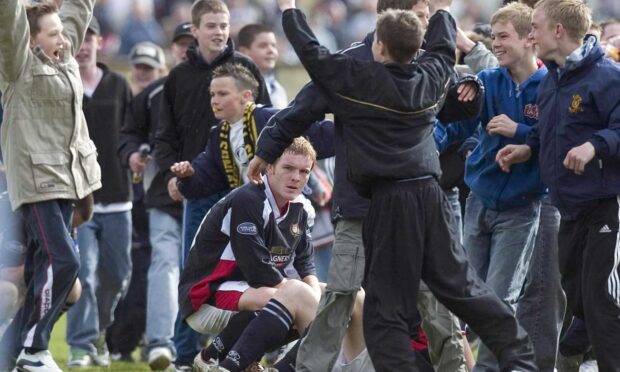
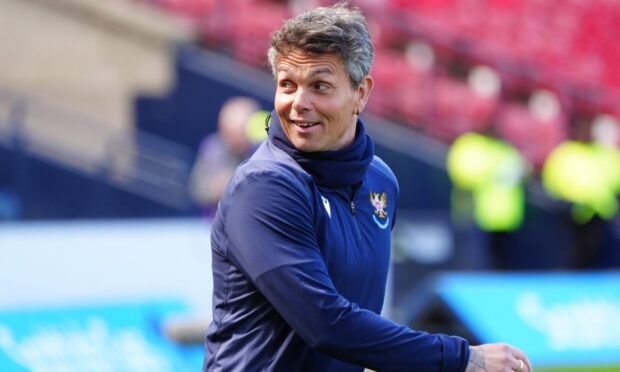
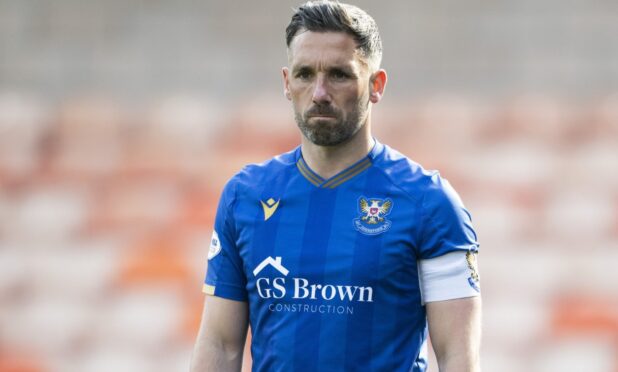
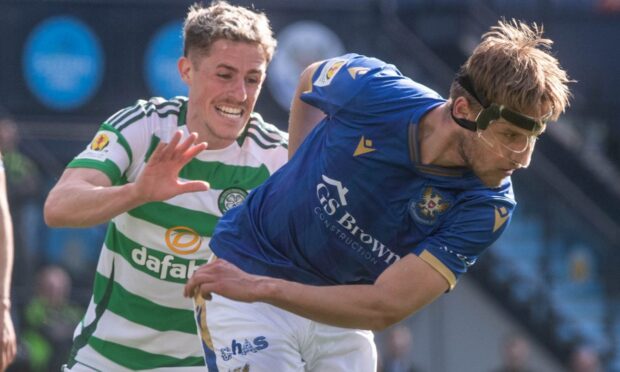
Conversation